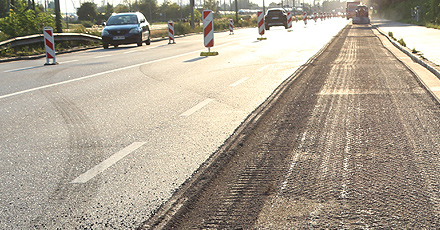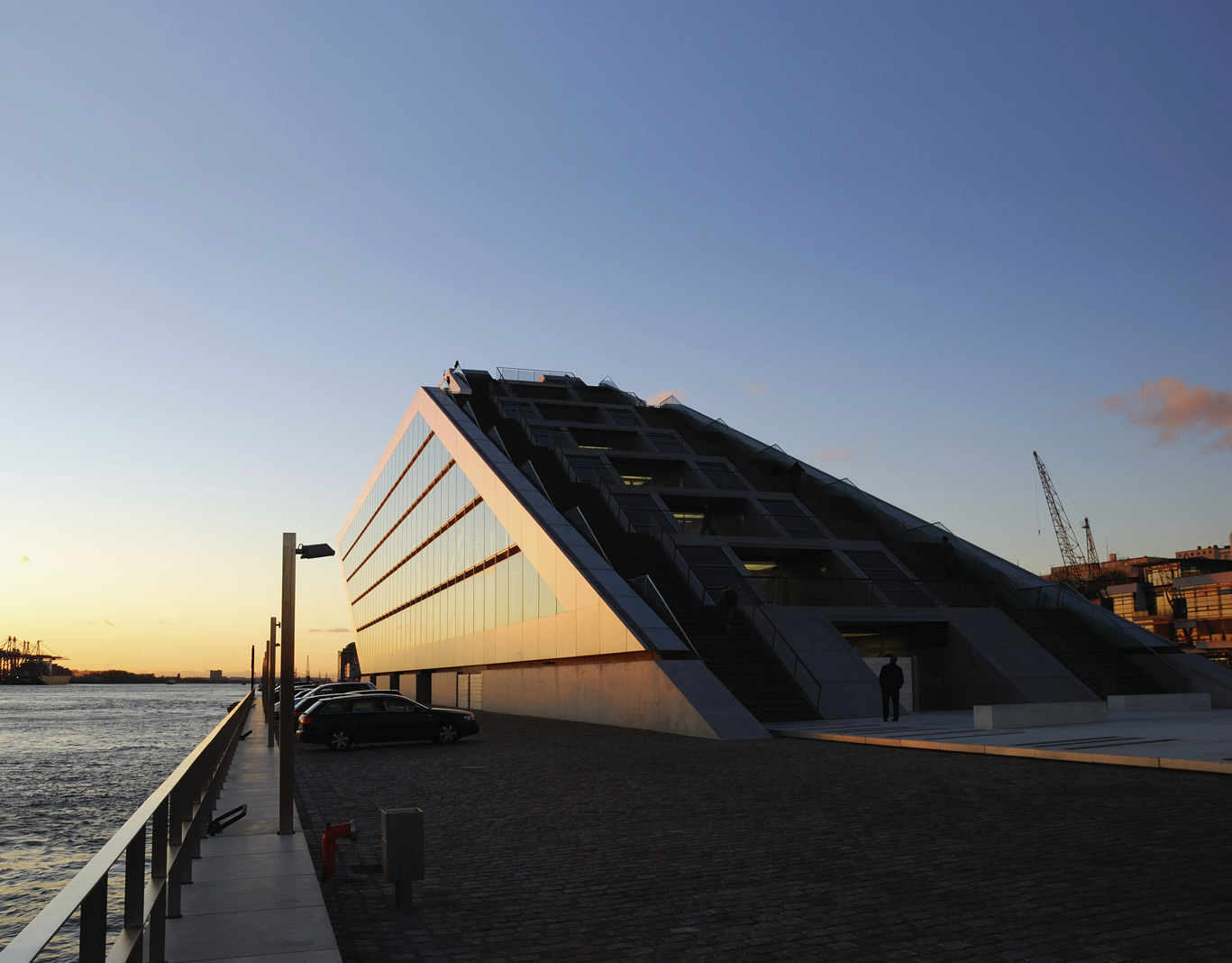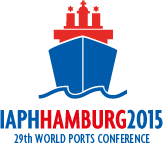
Eco-friendly Road Building in the Port of Hamburg
The recycling rate in road building in the port of Hamburg will be substantially increased, namely from 30% to 90%. That will save resources, reduce CO2 emissions and save money. The new incentive system presented by the Hamburg Port Authority (HPA) shows that ecology and cost-efficiency make for a perfect match.
When the road surface of a 10,000 square-metre-large road section was renewed in the summer of 2013, savings included two thirds of raw materials and 4.6 tonnes of CO2 emissions. An incentive system will now be introduced to raise the recycling rate from 30% to 90%. The road network in the port consists of 140 kilometres of roads and covers an area of approximately 7,200 hectares, which is equivalent to one tenth of Hamburg’s total area. It is continually used by heavy-goods vehicles that cause damage to the roads. Asphalt recycling is a cost-saving and eco-friendly solution to repair road surfaces.
The idea behind the incentive system is to make costs one of several criteria to evaluate offers submitted to the HPA by road building companies. Firms that tender for the supply of asphalt must produce proof of where the grit, sand, bitumen and other additives come from. When it comes to awarding the contract the mode of transport as well as the distance between the place of origin of the building materials, the asphalt mixer and the construction site will also be taken into account. And finally, the CO2 emissions saved will be calculated based on tables.
"The innovative incentive system does indeed save resources, such as quarried materials and oil, and lower CO2 emissions," says Jens Meier, Chairman of the Management Board of the HPA. Compared to conventional methods the reclaimed asphalt pavement method helps save up to one third of the costs. Jens Meier: "Cost-efficiency and ecology unite to support each other."
The HPA’s eco-friendly road building concept was awarded the Hanse Globe 2013 in December last year. The sustainability prize, which is open to participants from all over Germany, is awarded by Logistik-Initiative Hamburg for innovative solutions in the logistics industry.
When the road surface of a 10,000 square-metre-large road section was renewed in the summer of 2013, savings included two thirds of raw materials and 4.6 tonnes of CO2 emissions. An incentive system will now be introduced to raise the recycling rate from 30% to 90%. The road network in the port consists of 140 kilometres of roads and covers an area of approximately 7,200 hectares, which is equivalent to one tenth of Hamburg’s total area. It is continually used by heavy-goods vehicles that cause damage to the roads. Asphalt recycling is a cost-saving and eco-friendly solution to repair road surfaces.
The idea behind the incentive system is to make costs one of several criteria to evaluate offers submitted to the HPA by road building companies. Firms that tender for the supply of asphalt must produce proof of where the grit, sand, bitumen and other additives come from. When it comes to awarding the contract the mode of transport as well as the distance between the place of origin of the building materials, the asphalt mixer and the construction site will also be taken into account. And finally, the CO2 emissions saved will be calculated based on tables.
"The innovative incentive system does indeed save resources, such as quarried materials and oil, and lower CO2 emissions," says Jens Meier, Chairman of the Management Board of the HPA. Compared to conventional methods the reclaimed asphalt pavement method helps save up to one third of the costs. Jens Meier: "Cost-efficiency and ecology unite to support each other."
The HPA’s eco-friendly road building concept was awarded the Hanse Globe 2013 in December last year. The sustainability prize, which is open to participants from all over Germany, is awarded by Logistik-Initiative Hamburg for innovative solutions in the logistics industry.
smartNEWS



